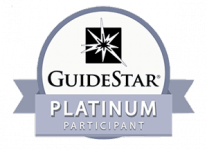Technical Advisory Board

Brook Kennedy
Co-Founder, Associate Professor of Industrial Design B.A. Art, Reed College MFA Design, Stanford University
Brook Kennedy is an industrial designer, researcher, and educator. With a foundation in industry with human-centered design agencies (Smart Design, MGDG), his current research work explores design opportunities across biology, design, and engineering with a special focus on sustainability and health.
His sequoia tree-inspired fog harvesting technology, Fog Harp, has attracted funding and international media attention for advancing global access to clean drinking water. Currently, he is researching promising sustainable biomaterials with Jonas Hauptman and collaborators at UCSD and TUM. Brook began his education as a biologist and later in design, receiving degrees at Reed College and Stanford University. Over the past two decades, he has earned more than 20 patents and 20 international awards.

Trevor White
WASH Technical Advisor, Bureau for Humanitarian Assistance (BHA) United States Agency for International Development.
Trevor White is a Water, Sanitation, and Hygiene (WASH) Advisor at USAID/OFDA. As part of the USAID/OFDA WASH team, Trevor provides support at the country level during natural disasters and conflicts, but also at a global level to support efforts to improve the quality of future WASH responses.

Dr. M. Snehalatha
Associate Professor at the Centre for Urban Governance, Environment, Energy and Infrastructure Development at the Administrative Staff College of India (ASCI)
Dr. Snehalatha is an Associate Professor at the Centre for Urban Governance, Environment, Energy, and Infrastructure Development at the Administrative Staff College of India (ASCI). She comes with over 24 years of experience in designing, implementing, and evaluating research projects in the broad thematic areas of WASH, environment, and sustainable livelihoods. The last ten years of her research were primarily targeted to inform and influence policy formulation and practices toward achieving inclusive, equitable, and sustainable WASH progress.
Dr. Snehalatha obtained her Ph.D. in Extension Education from Acharya NG Ranga Agricultural University, India and she began her professional career in the design and implementation of capacity-building programs for the rural communities in Andhra Pradesh which focused on participatory approaches of watershed development. Subsequently, she made a conscious choice to pursue her research engagement in the WASH sector and held important positions in completing various research and study projects. By virtue of her experience and positions held in various research projects, she had the opportunity of working with the National Governments and international Nonprofits including the UN Agencies focusing on financial and physical sustainability, resources management, gender equity, and human rights aspects related to WASH.
Some of the important research positions she has held include Impact Advisor for the Rural-Urban and Sanitation Transformation (RUST) project to produce evidence-based research on sanitation solutions for rapid urbanization (2018-2020); South Asia Regional Advisor for Splash in which she was instrumental in establishing country programs for safe drinking water in India and Bangladesh (2013-2015); Country Coordinator in India for the WASH Cost research project of IRC, The Netherlands (2008-2012) which focused on costs and services of WASH. In recognition of her contribution to the WASH Cost project, she was nominated as a member of the working group on Drinking water and sanitation of the 12th Plan formulated by the Ministry of Drinking Water and Sanitation, Govt of India to develop the five-year plan.
She has published over 20 journal and conference papers, 50 Study reports and articles, co-authored books, and extensively contributed to the knowledge-building process in the development sector. She is a regular contributor at the global multi-stakeholder platforms including the Stockholm Water Week, the World Water Forum, SACOSANs, and Sanitation and Water for All global partnership forum. She is also an advisor to several NGOs in Telangana and Andhra Pradesh and is currently a board member of SAIRD, APARD, and Nischinta Foundation which are working for the empowerment of the poor in India.

Rishi Shah
Senior Director, Sustainability for Wyndham Hotels & Resorts
Rishi Shah is the Senior Director of Sustainability for Wyndham Hotels & Resorts where he leads global sustainability efforts, including ESG reporting, for the Company. Rishi helps guide franchisees to integrate sustainability into their day-to-day operations, helping to deliver additional value to each hotel. Before joining Wyndham, Rishi ran his own consulting firm where he assisted hotels and other commercial properties with the development and implementation of sustainability-related strategies and operational best practices. Additionally, he has a decade of experience working in his family’s hotel business. Rishi holds a Bachelor of Arts in Economics from Cornell University and an MBA in Entrepreneurship from Babson College.

Wendemagegn Enbiale
Professor, School of Medicine and Health Sciences, Bahir Dar University, Ethiopia
Dr. Enbiale’s background is a medical doctor with a Master’s in Public Health from the Manchester Metropolitans University and a Ph.D. in global health from the University of Amsterdam with about 19 years of experience. He has worked as an assistant professor at Bahir Dar University, Ethiopia since February 2010 before joining the Federal Ministry of Health of Ethiopia in April 2013 as a Director for Human Resource Administration and Development. In the Ministry, he has led the ministerial initiative in health professional education quality improvement working in both teaching institutions all over the country and the Ministry of Education.
From October 2015 to January 2022, Dr. Enbiale has worked as an associate professor and since February 2022 as a professor of Dermatovenerology at Bahir Dar University. His role in the university is as a clinician, academician, and researcher. He has published about 40 peer-reviewed articles.
Currently, Dr. Enbiale volunteers to support the regional health bureau and Federal Ministry of Health technically in evidence generation for NTD management and emergency response.
Dr. Enbiale is a board member of the International Alliance for the Control of Scabies since 2016 and is serving on the Amref Ethiopia, advisory council since November 2018. Since November 2020, Dr. Enbiale has been involved in WHO Target Product Profiles (TPPs) for Scabies TTP development and also is a member of the national NTD Research Advisory Committee for the Ethiopian Ministry of Health and the WHO Strategic Technical Advisory Group for Neglected Tropical Diseases.
Currently, Dr. Enbiale serves as vice chair of the International Alliance for Global Health Dermatology (GLODERM).
Dr. Enbiale’s consultancy work experience in the last 5 years include:
- Trainer of operational research for WHO TDR since 2019 while facilitating different SORT-IT training for Southeast Asia and Africa.
- From November 2020 Dr. Enbiale was given consultancy work from TDR to provide technical expertise for undertaking operational research and capacity strengthening embedded within the public health programs in Ethiopia.
- Since February 2019 in Manila, Philippines, as a WHO Informal Consultation to develop documents for one of the NTDs
- Consultant on APW for two months for the rapid assessment of Noma situation in Ethiopia in 2022
- Consultant on APW for two months for the rapid assessment of the Mycetoma situation in Ethiopia in 2022
Participation in clinical trials research in the last five years
- Investigation of the Pathogenesis of Podoconiosis using RNA-seq and Immunopathologic Approaches: A case-control study. Protocol# 13-HG- N129, Co- Investigator
- An adaptive Phase II/III Single-Blinded, Randomized, Multi-Centre, Parallel- Group, Active-Controlled, Superiority Study to Evaluate the Safety and Efficacy of a Single Day or 3-day Single Dose of an ALBENDAZOLE- IVERMECTIN Co-formulation vs ALBENDAZOLE for the Treatment of Soil-Transmitted Helminth Infections (Trichuris trichiura, hookworm, Strongyloides stercoralis) in Pediatric and Young Adult Population (ALIVE Study)
- An open-label, multi-center, randomized, adaptive platform trial of the safety and efficacy of several therapies, including antiviral therapies, versus control in mild/moderate cases of COVID-19. PACTR202006537901307-ANTICOV, Site principal investigator and country coordinator (ANTICOV Master)
- The impact of COVID-19 treatment on the type, strength, and duration of antibody and cellular immune responses in SARS-CoV-2 patients in sub-Saharan Africa (ANTICOV IMMUNO), Site principal investigator
- Factors affecting the transmission of SARS-CoV-2 in Households of SARS-CoV- 2 patients in Sub-Saharan Africa (ANTICOV EPI), Site principal investigator
- Integrating NTD campaign interventions into the Primary Health Care System: An exploratory implementation research in Ethiopia” The Bill & Melinda Gates Foundation funding through the Task Force for Global Health. HCE program as ID number HCE018 -IRS030. Co-Investigator

Manab Chakraborty
Indian Space Research Organization (ISRO)/Satellite Application Center (SAR) (Retired)
Dr Chakraborty completed a PhD in Theoretical Nuclear Physics from the Physical Research Laboratory (DOS), Ahmedabad in 1982. Following this, he engaged in postdoctoral work until 1983, subsequently joining the Space Applications Centre, ISRO, DOS, within the Government of India. His dedicated service spanned around 32 years, culminating in his retirement on June 30, 2015.
Since 1983, Dr. Chakraborty has been at the forefront of developing Digital Remote Sensing Technology for both Land and Ocean Applications. In 1994, his focus shifted to Agricultural Monitoring through Remote Sensing and Geomatics Technology. Since 1996, his efforts have centered on leveraging SAR Remote Sensing data for Agricultural Monitoring. From 2000 to 2002, he took on the responsibility of formulating Requirement Specifications, Design, and Operations Requirements for the RISAT-1 SAR satellite (Indian). The years 2011 to 2015 saw him leading ISRO’s team for NISAR Design and Application Specifications. From 2001 to 2012, Dr. Chakraborty undertook the role of Project Director for the RISAT Utilization Program at ISRO, a transformative initiative that engaged Indian Remote Sensing Scientists in SAR data utilization. This initiative significantly contributed to involving a substantial number of Remote Sensing Scientists in the utilization of SAR RS data.
From 2001, Dr. Chakraborty has been championing the significance of incorporating WORKHORSE C and L Band SAR into space missions, providing reliable and regular data to the scientific community. He has been a key contributor to the design, development, and configuration of NISAR Application Programs and Satellite Specifications in their capacity as Team Leader. Between 2011 and 2015, as Chairman of the Committee, Dr. Chakraborty evaluated all R&D Projects within SAC/ISRO, with a notable focus on developing Optical and Microwave Sensors and Payloads.
Dr. Chakraborty has played a pivotal role in fully computerizing Remote Sensing Areas across all Centers and Units of ISRO. Subsequently, his expertise was sought as Chief Advisor for State Remote Sensing Centers, guiding computer requirements and designing configurations. This advisory role extended to MNCFC, New Delhi, under the Ministry of Agriculture.
At present, Dr. Chakraborty is immersed in designing and developing innovative methodologies that harness SAR for Agricultural Monitoring, including applications in hydrology such as Soil Moisture Mapping, drought, and flood assessment.

